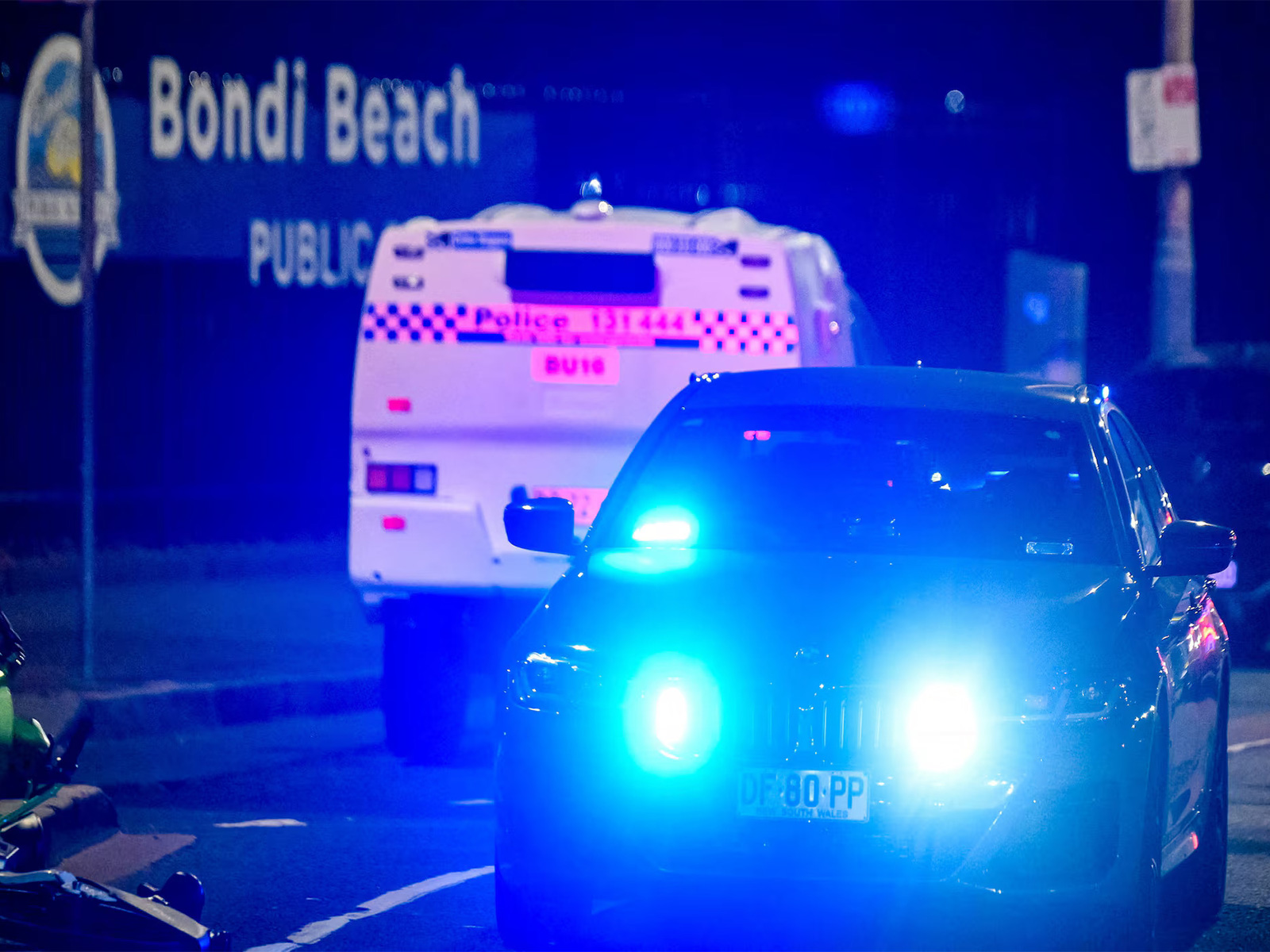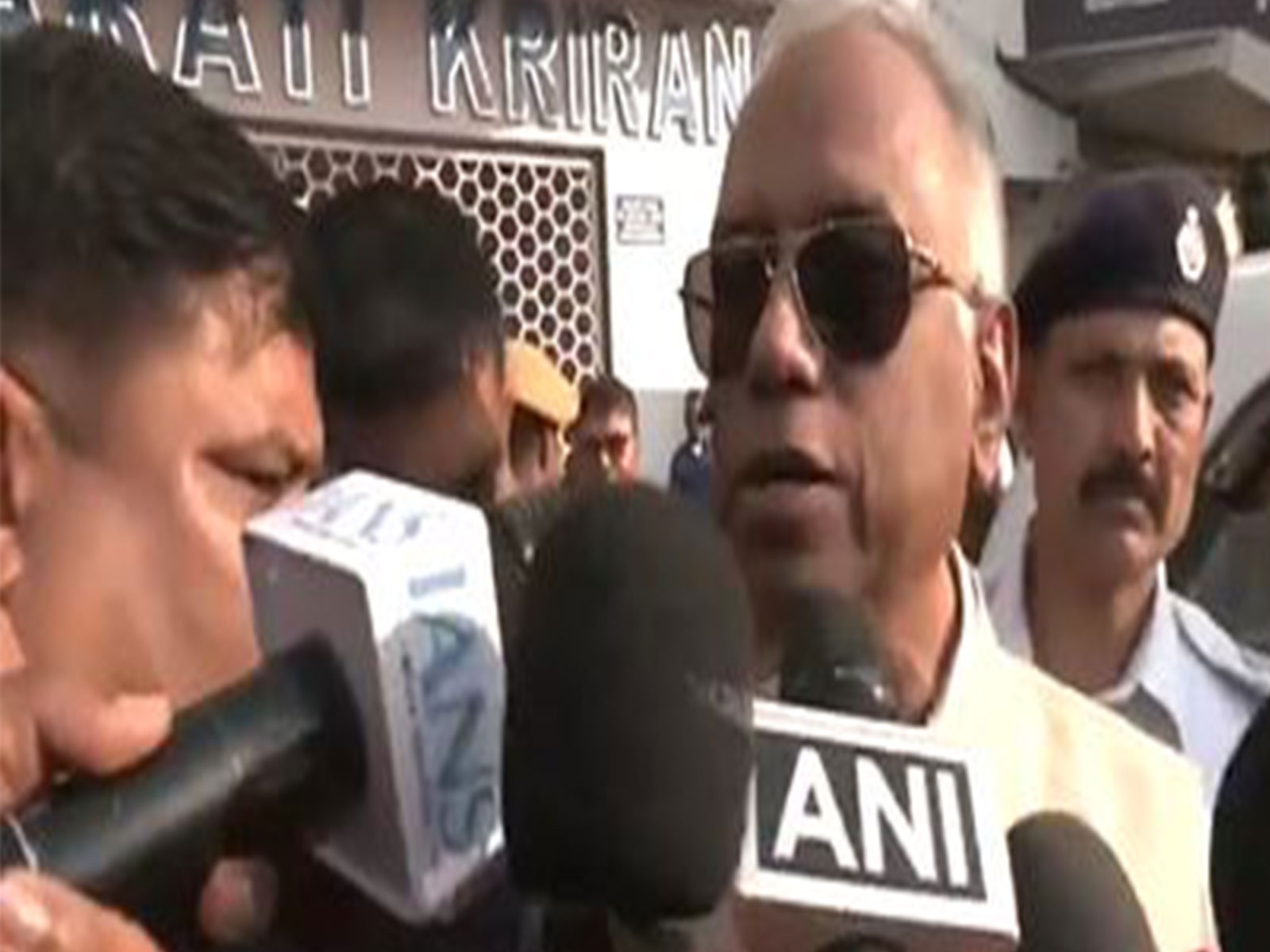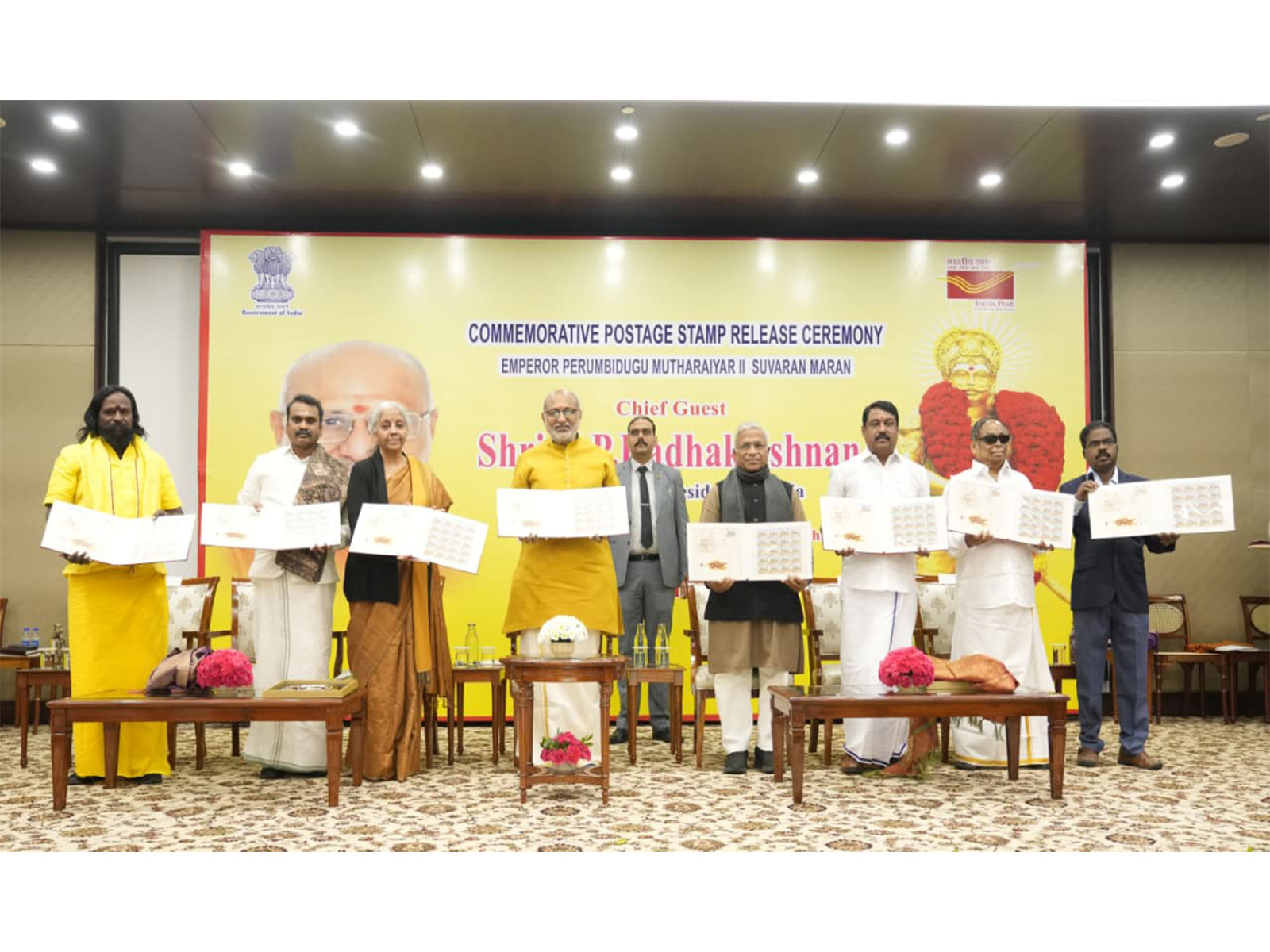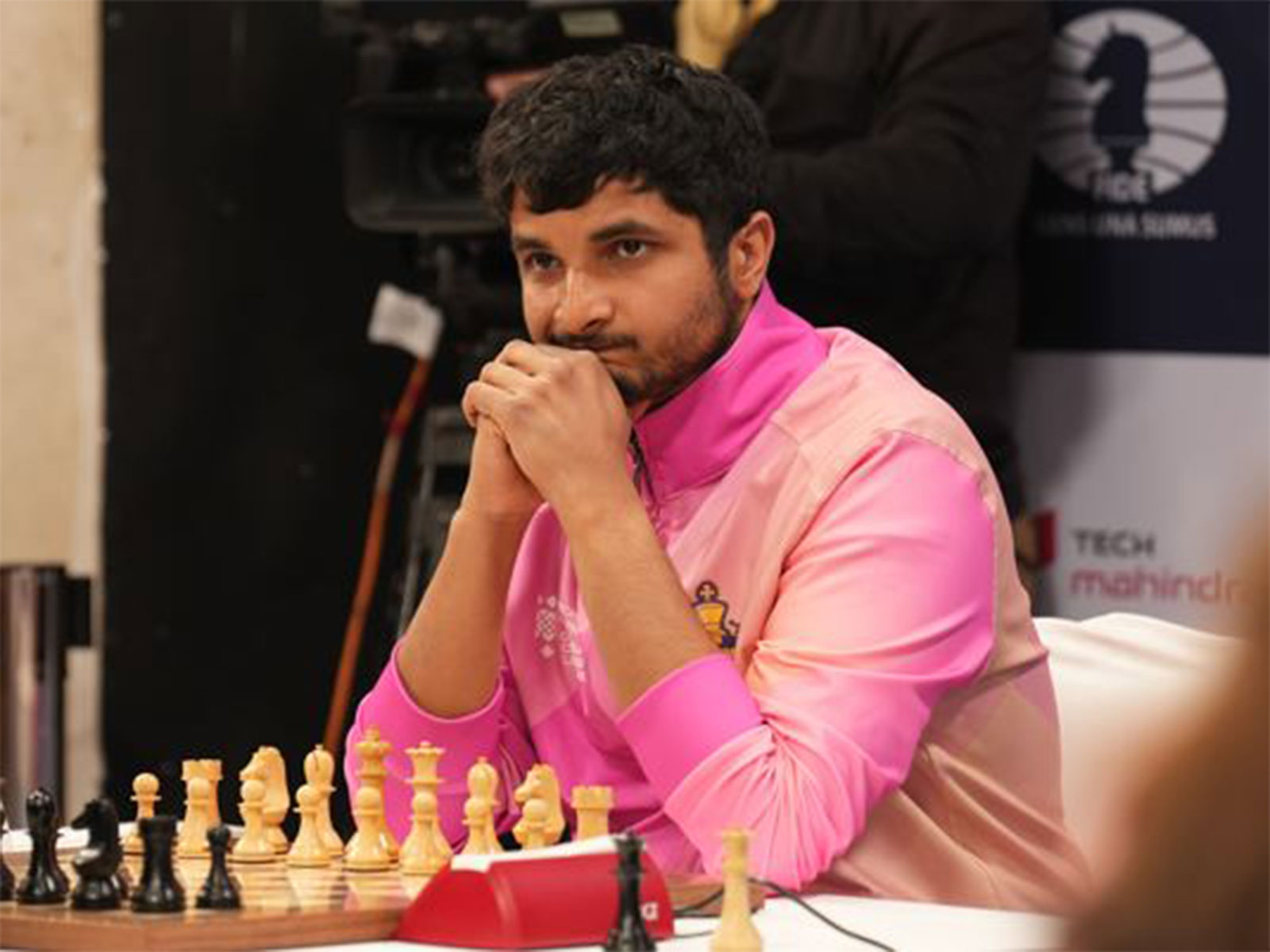Vice President Dhankar to inaugurate restored 'Hall of Dancers' at Ta Prohm temple in Cambodia
Nov 12, 2022

By Annie Samson
Phnom Penh [Cambodia], November 12 : Vice President Jagdeep Dhankar who arrived in Cambodia on Friday is set to inaugurate the recently restored 'Hall of Dancers' at the famed Ta Prohm temple, located inside the Angkor Heritage Park adjacent to the cultural and tourist province of Siem Reap.
Made famous in the 2001 film, 'Tomb Raider' starring Angelina Jolie, the restoration work at the sprawling and quiet Buddhist monastery of Ta Prohm has been completed by the Archaeological Survey of India (ASI).
Dedicated to Lord Brahma, the Ta Prohm temple is located inside the Angkor Archaeological Park in the northern part of the country. The restoration work of the Hall of dancers inside the temple commenced in the year 2011 under the Cambodia-India cooperation project.
Vice President Dhankar is here to attend the ASEAN-India Commemorative Summit and the 17th East Asia Summit will on November 13 visit inaugurate the portion of the temple of which the ASI has completed restoration.
"... Tourists from India, Europe and other countries will increase. They will have a glimpse of how India has gone about the restoration process and how it is restoring the ancient structures," said D S Sood of the ASI who has been involved in restoring the Ta Prohm temple, told ANI.
The archaeologist said that for the restoration work, the ASI is collaborating with APSARA of the Cambodian government, under which lies the Angkor Heritage Park- which has several of the world's most renowned places such as the Angkor Wat temple, one of the 10 man-made wonders of the world and a UNESCO World Heritage site.
Vice President will also visit the Angkor Wat temple where ASI had done work in the 80s.
"I look forward to a visit to the prestigious complex," Dhankar said while addressing the Indian diaspora at Phnom Penh on Friday evening. Prior to that, the Vice President attended a cultural event, where a Kathakali troupe from India performed a portion of the Mahabharata.
"We believe that the visit will contribute to the strengthening of the India-Cambodia bilateral relationship," Saurabh Kumar, Secretary (East) told reporters at a special media briefing in New Delhi ahead of the visit.
On the sidelines of the ASEAN summit, among the several MoUs set to be signed between the two countries include one where India will fund restoration work of an ancient painting related to the Ramayana and done by APSARA (Authority for teh Protection of the Sites and Administration of the Region of Angkor).
Meanwhile, four MoUs/agreements were signed in the areas of culture, wildlife and health.
Meanwhile, at the Ta Prohm temple, the ASI has besides the dance hall also done restoration work on the South and East gates along with Gopuras.
India has been for long associated with the restoration work of temples in Cambodia. Since 2003, the ASI has been working with local staff and workers on the restoration work of the temple, which is dedicated to Lord Brahma. The ASI has been collaborating with APSARA. The third phase of the restoration work started in November 2016.
The temple was built between the mid-12th century and early 13th century by the Khmer king Jayavarman VII. Initially constructed as a Buddhist monastery, it was dedicated by King Jayavarman VII to his mother.
Among the many challenges faced by the ASI team, said Sood was working around the huge trees that had grown inside the structure. Technical help was provided by the Forest Research Institute of India to construct the temple from scratch.
"The temple was in ruins and a pile of stones and not accessible for tourists. Some tourists who visited the site had to climb up the stones on the dilapidated structure to get a view, it was not open and accessible as it has become now," the archaeologist said.
Sood told ANI that "India has restored and opened the area for tourists so that they can come and see the temples and also see the restoration."
India has spent nearly Rs 50 crore on the restoration process so far and work has been completed at five places on the site there are three more places on the site, which has been assigned by UNESCO.
"The vice president will inaugurate the restored part which ASI has completed, after which tourists from India, Europe and other countries will increase. They will see how India has restored and is restoring the ancient structures."
"It will certainly showcase India's restoration work and demonstrates the government's commitment to preserve and restore temples," DS Sood said emphasising that the Ta Prohm temple is a testament to the synergy between built heritage and nature.
The Hall of Dancers at the Ta Prohm temple had all crumbled and during the excavation process, two large headless statues of Buddha in a sitting position were found. The discovery was a significant archaeological discovery, said Sood.
"The restoration process is an ongoing process and will continue in the future too," the archaeologist said.
The temple complex originally called the Rajavihara or royal temple comprised a sanctum sanctorum and 39 other shrines topped with towers (vimanas), galleries, causeways and entrance gate gopuras. The sanctum had an image of the Pragnya Paramita, the goddess of wisdom and was installed in 1186 CE. It is said that the image had been modelled on the mother of the Khmer king Jayavarman VII, who dedicated the temple to his mother.
The Hall of Dancers, the centre of the temple had 48 pillars supporting its corbelled roof. Each of the pillars supported carvings of dancing apsaras, and other motifs.
Sandstone blocks from Kulen mountain, located some 35 km away from it were used to build the temple.
UNESCO has said that the restoration work should be conducted in such a way that visitors can see the contradiction between the restored work as well as the one that is in ruins.
FRI, Dehradun, and the Indian Institute of Technology Madras were also involved in the restoration process of the temple.
What the Taj Mahal is to India, Angkor Wat is to Cambodia. The city of Angkor is also home to the UNESCO World Heritage site, Angkor Vat. Angkor is one of the most important archaeological sites in South-East Asia.
Angkor Wat is a temple complex in Cambodia and one of the largest religious monuments in the world.



















